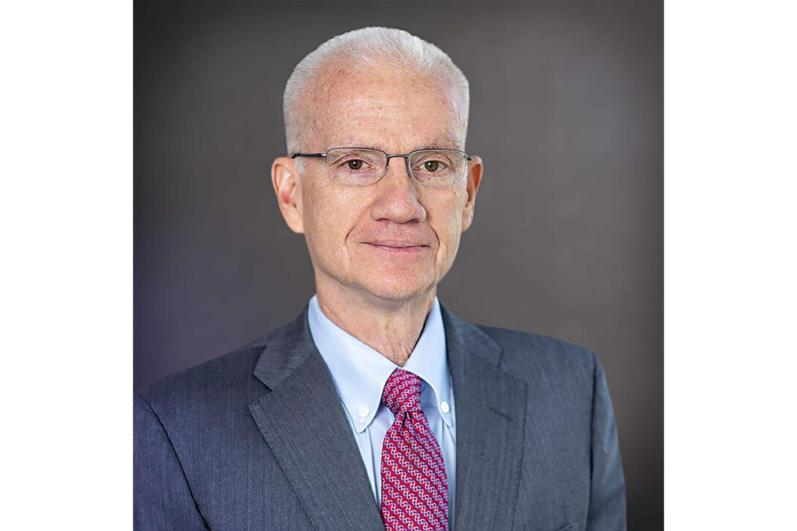Corcoran reflects on new role in Dicastery for Communication
BRAINTREE -- John Corcoran's interest in data analysis has always carried over to his roles in the world of Catholic communications and it is now being put to new use.
Corcoran is the chair of the board of trustees of iCatholic Media (the parent organization of The Pilot and The CatholicTV Network) and a member of the board of Pope St. John XXIII Seminary. He is also an entrepreneur with more than 30 years of consulting experience in the pharmaceutical and biotechnology industries. His areas of expertise include commercialization strategy and data management.
On Sept. 29, Pope Francis appointed Corcoran to be a consultant for the Dicastery of Communication, which has authority over all the communication offices of the Holy See. Originally called the Secretariat for Communication, it is composed of bishops, archbishops, cardinals, rectors, and over 20 consultants, including religious, academics, and experts with backgrounds in business and related fields. Corcoran made his first visit to the Vatican in this capacity in mid-November to meet with other dicastery members and with the Holy Father himself.
In a Dec. 5 interview, Corcoran discussed the connection between his career in data analysis and his involvement in Catholic media. He explained that every click on a social media post is a point of data.
"My initial interest in this space was to understand the backend data and the analytics, not just as an intellectual exercise but for the purpose of understanding how engagement was actually occurring," he said.
One advantageous aspect of digital media is that it allows content creators to see instantaneously when and how people engage with their content. If certain posts are receiving high engagement, they will know to continue producing similar content; but if not, they can discontinue it.
"You can find out what works and what doesn't, and you can quickly adjust," Corcoran said, adding, "The ability to pivot really quickly, and meet the needs and interests of your audience, is elevated in digital media in ways that it's not possible elsewhere."
Digital engagement and accompaniment were one area of focus of the meetings Corcoran attended with the other members of the dicastery for their plenary session, which took place at the Apostolic Palace in the Vatican Nov. 10-12. The other area of focus was synodality and the synodal process.
"The central importance of the synod process was definitely affirmed and acknowledged. The significant challenge of reaching a global audience was discussed. However, the unique ability of the digital world to eliminate those geographical distances by virtue of the technology was also noted," Corcoran said.
He used a hypothetical example during the dicastery meetings to illustrate the powerful potential of digital media. Statistics indicate that the average adult in the world has about 600 people in their "social graph," or social network. But some individuals, including some of those in the dicastery, may have thousands. If 10 of them each shared a social media post with a social graph of 6,000 people, altogether they could reach 60,000 people; and if each of those people shared the same post with 600 people in their social graph, that would bring it to 36 million people.
"There is nothing in traditional media that can ever do that kind of thing, certainly not instantly with the click of a button. So, my interest is using the power of digital engagement to reach a much larger audience for the purpose of evangelization," Corcoran said.
On their last day of meetings, the dicastery had an audience with Pope Francis, who spoke to them about their work and the synodal process. He then greeted each of them individually. Corcoran said that was "a particular highlight" of the trip.
In the past, the Holy Father has emphasized that communication must be characterized by participation in sharing.
"His particular emphasis is that outreach itself is a form of witness," Corcoran recalled.
The challenge going forward, he said, is that it is not enough to simply broadcast content.
"In some ways, the need for listening, and finding people where they are, is a result or output of the fact that traditional communication has been of the push variety, of the broadcast variety," Corcoran said.
In contrast to this, "the new digital world allows for two-way engagement."
"I think that the challenge for the dicastery is to move beyond just traditional broadcasting or sharing of a message, and making it purposeful, dynamic, intentional, so it's communication with explicit purpose, in this case evangelization. That's what's particularly new and interesting, and that's the exciting work of the dicastery," he said.
Corcoran said he left the meetings feeling "encouraged" by the existence and importance of the dicastery.
"I was encouraged to see a really diverse group of people from around the world sharing perspectives on a common theme and acknowledging how important these tools are for evangelization. So, I left with a lot of hope and promise that we're on the right track," he said.



















